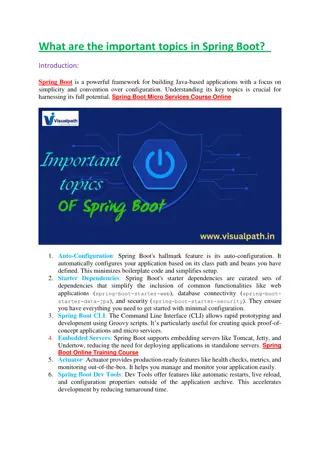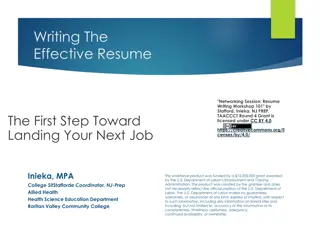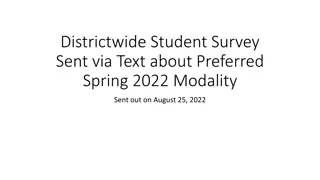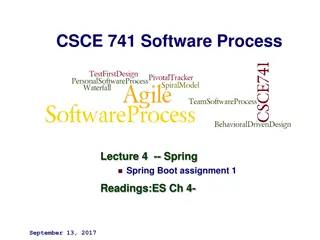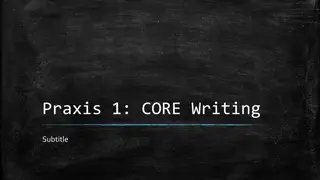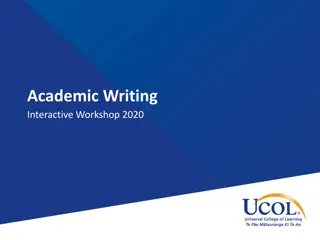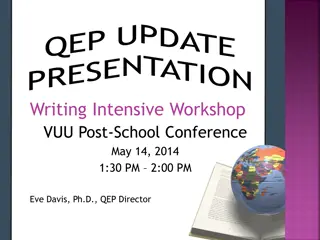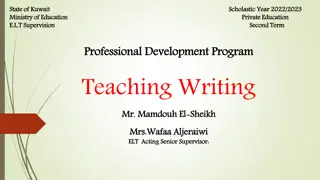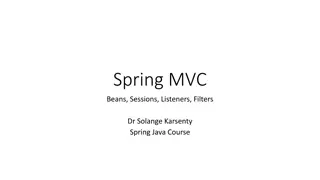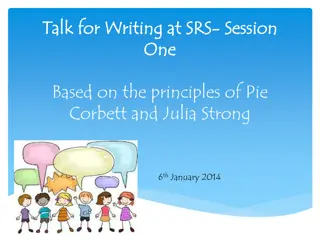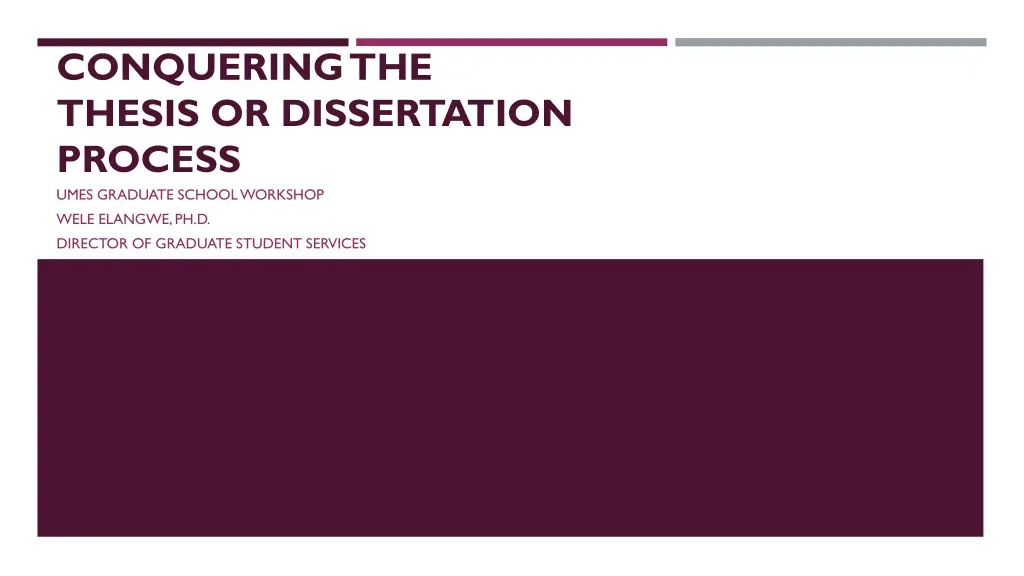
Mastering the Research Process in Graduate School Workshop
Explore the essential steps for conquering thesis or dissertation writing, from identifying research focus to methodological thinking. Gain insights on setting research goals, cyclical nature of research, and designing your study effectively.
Download Presentation

Please find below an Image/Link to download the presentation.
The content on the website is provided AS IS for your information and personal use only. It may not be sold, licensed, or shared on other websites without obtaining consent from the author. If you encounter any issues during the download, it is possible that the publisher has removed the file from their server.
You are allowed to download the files provided on this website for personal or commercial use, subject to the condition that they are used lawfully. All files are the property of their respective owners.
The content on the website is provided AS IS for your information and personal use only. It may not be sold, licensed, or shared on other websites without obtaining consent from the author.
E N D
Presentation Transcript
CONQUERING THE THESIS OR DISSERTATION PROCESS UMES GRADUATE SCHOOL WORKSHOP WELE ELANGWE, PH.D. DIRECTOR OF GRADUATE STUDENT SERVICES
AGENDA Help me Designing Format and Structure Citing Sources Resources Final Thoughts
HELP ME Identify Broad Research Focus Examine the literature Identify areas of exploration Identify the Gap(s) in the Literature Is this a gap worthy of exploring? Will studying this help contribute to furthering knowledge in your field? Create Your Research Question(s) What questions will help to address the identified gap in the literature? What methodological approach is appropriate?
GOALS OF RESEARCH Goal of Research Description Abstract Question Seeking to determine if a phenomenon exists Exploratory Research Does it exist? Differentiating phenomenon from other phenomenon or attempting to characterize it in a more complete manner Descriptive Research What are its characteristics? Identifying relationships to provide knowledge about some thing by knowing about another thing Predictive Research To what is it related? Seeking an explanation by examining a cause-effect relationship between two or more phenomena Explanatory Research What causes it? Action Research Research to solve a social problem Can this be used to solve a problem?
CYCLICAL NATURE OF RESEARCH Review of Literature Creation of Operational Definitions Topic Selection Curiosity Hypothesis Formulation Publication or Dissemination Data Collection Explanation of Results (Dane, 2011)
DESIGNING YOUR STUDY Having Research Mindset Literature guides your study YOU ARE NOT PROVING ANYTHING! The hypothesis is supported or not supported Be cautious and conscientious with words Hypotheses (quantitative) must support research questions Synthesizing questions (qualitative) must support research questions
METHODOLOGICAL THINKING Deductive Logic (usually quantitative studies) Using what is already known to determine what data to collect and what it will mean (Predictable) Inductive Logic (usually qualitative) Using data to develop concepts and theories (Emergent. Lens. No predictability) Hypotheses must come from existing literature deductive logic If limited knowledge on a topic, study primarily utilizes inductive logic Many studies utilize a combination of both types of logic
FORMAT AND STRUCTURE Follow the guidance provided by UMES Follow the guidance provided by your specific department and advisor
GENERAL Introduction to the Study or Statement of the Problem Chapter 1 Review of the Literature Theoretical or Conceptual Framework Chapter 2 Methodology of the Study *Ethical Practices IRB Protocols *Sample, data collection, analysis, R & V Chapter 3 Results of the Study (quantitative) Findings of the Study (qualitative) Chapter 4 Discussion and Conclusions Chapter 5 (UMES theses and dissertation guide, 2015-2016)
FORMAT AND STRUCTURE - ORLD Chapter 1 Introduction Chapter 2 Literature Review Theoretical Framework (quantitative) Conceptual Framework (qualitative) Chapter 3 Chapter 4 Research Design and Methodology Results of the Study (quantitative) Findings of the Study (qualitative) Chapter 5 Chapter 6 Discussion and Conclusions
CHAPTER 3 - (ORLD STUDENTS ONLY) (THEORETICAL OR CONCEPTUAL FRAMEWORK) ORLD utilizes a distinct chapter for the theoretical/conceptual framework Overview of chapter Theory(ies) or concepts from which study is derived How does theory inform this study? What is missing from theory that this study may help to explain? Conceptual or theoretical model of the study Research questions Hypotheses or synthesizing questions Summary of the chapter
FINAL PIECES References Appendices
FORMAT AND STRUCTURE Utilize UMES guidelines Citation and reference format dictated by your program APA common in social sciences (American Psychological Association, 2022) Publishing on ProQuest
RESOURCES Department Chair Advisor Professors with specific expertise Department formatting guidelines UMES Guide to Preparation of Theses and Dissertations UMES Graduate Writing Center*** Peer mentors Books & articles
FINAL THOUGHTS Prior research informs your study Be flexible Remain open to other options Listen to feedback Cite your sources You must be passionate about the topic IT WILL NOT BE PERFECT
REFERENCES American Psychological Association. (2020). Publication manual of the American Psychological Association (7th Edition). APA. Brewerton, P., & Millward, L. (2004). Organizational research methods: A guide for students and researchers. Thousand Oaks, CA: Sage Publications, Inc. Dane, F. C. (2011). Evaluating research: Methodology for people who need to read research. Los Angeles, CA: Sage Publications, Inc. Daniel, J. (2012). Sampling essentials: Practical guidelines for making sampling choices. Thousand Oaks, CA: SAGE Publications, Inc. Fowler, F. J. (2014), Survey research methods. Los Angeles, CA: Sage Publications, Inc. Loseke, D. R. (2017). Methodological thinking: Basic principles of social research design. Thousand Oaks, CA: Sage Publications, Inc. Machi, L. A., & McEvoy, B. T. (2016). The literature review: Six steps to success. Thousand Oaks, CA: Corwin. Morgan, S. E., Reichert, T., & Harrison, T. R. (2017). From numbers to words: Reporting statistical results for the social sciences. New York, NY: Routledge. Pollock, T. G., & Bono, J. E. (2013). Being Scheherazade: The importance of storytelling in academic writing. Academy of Management Journal, 56(3), 629 234. doi: 10.5465/amj.2013.4003




